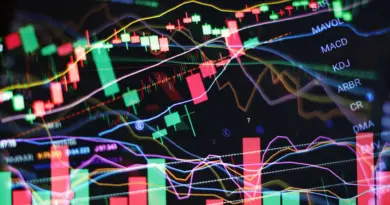Trade Forex on Rare Events
Trading forex based on “rare events” such as wars, black swans, and other similar geopolitical or financial shocks is one of our favorite trades and perhaps more importantly one of the trading genius, Nassim Talebs favorite trades . Because, these events can have both immediate and lasting effects on the values of currencies.
We view forex trading on rare events as one of the most safe and profitable strategies. It involves few trades, a clear direction in the market and much control. Let’s consider that a country at war declares peace. Then it is very likely that their currency will strengthen as a result of that. Also, it is worth getting to knowing the movements in these situations. Let’s fx. imagine that you see that peace are being declared live on CNN. Then you can trade directly based on the news and enjoy the uptrend. Thereafter, it’s expected that the currency will decline due to limits and profit taking. At this point, you can close your position and open a new one, when the rate has reached the new, temporary low. After that it is likely for it to be in an uptrend for a while.
But let’s dig into the theory and specifics of rare event trading, so we are ready for the next big one.
Trading Forex on Rare Events Overview
- Understanding Black Swans and Rare Events:
- Coined by Nassim Taleb, the term “black swan” refers to an unpredictable event that is beyond what is normally expected and has a potentially severe impact. These events are characterized by their rarity, severe impact, and the retrospective (though not prospective) sense that they were predictable.
- Wars, natural disasters, financial crises, and geopolitical tensions can significantly impact a nation’s economy and, subsequently, the value of its currency.
- Immediate Impact:
- News of a rare event can lead to a sharp reaction in the forex markets. Traders and algorithms might respond to headlines in real-time, leading to rapid price movements.
- Such events can lead to a “flight to safety” where investors move their capital to perceived “safe-haven” assets like gold, the US dollar, the Japanese yen, or Swiss franc.
- Long-Term Effects:
- The long-term impact on a currency’s value can be less predictable. It might depend on factors like the actual economic consequences of the event, changes in government policy in response, or shifts in global trade dynamics.
- The long-term impact on a currency’s value can be less predictable. It might depend on factors like the actual economic consequences of the event, changes in government policy in response, or shifts in global trade dynamics.
- Challenges in Trading on Rare Events:
- Predictability: By nature, black swan events are unpredictable, so betting on their occurrence is speculative.
- Volatility: When these events occur, markets can become extremely volatile. Such conditions can lead to significant losses, especially if using leverage.
- Liquidity Concerns: During major shocks, liquidity can dry up, making it difficult to enter or exit positions at desired prices.
- Emotional Factors: Human psychology can sometimes exacerbate market movements. Fear or greed-driven decisions can distort market prices further.
- Strategies for Trading on Rare Events:
- Stay Informed: Always keep an eye on global news and understand the potential geopolitical implications.
- Hedging: If you believe there’s a significant risk of a rare event, you can hedge your positions to limit potential losses.
- Limit Leverage: Given the increased volatility, limiting the use of leverage can prevent magnified losses.
- Use Stop-Loss Orders: These can limit downside risk, but remember in extremely volatile markets, slippage can occur.
- Diversification: Having a diversified portfolio can reduce the impact of adverse moves in any one asset or currency.
Understanding Black Swans and Rare Events

Imagine you’re looking at a serene pond, where all you’ve ever seen are white swans. Suddenly, out of nowhere, a black swan appears. This unexpected and rare occurrence mirrors the concept of a “black swan” event in the world of finance and economics. Nassim Taleb popularized this term to describe those unpredictable events that shake up our normal expectations and can drastically reshape landscapes.
So, what exactly is a black swan event? In essence, it’s a major surprise, something that nobody could’ve seen coming, yet it leaves an indelible mark. Think of it as a plot twist in a movie; no one anticipates it, but once it happens, everyone can look back and pinpoint the clues leading up to it.
However, not every unexpected event qualifies as a black swan. For it to be a black swan, the event must be rare, have a profound impact, and give off a deceptive feeling afterward that it was predictable all along. That’s the tricky part: in hindsight, we might think we should’ve seen it coming, but in reality, predicting it was near impossible.
Now, consider events like wars, natural disasters, or financial crises. While not all of these are black swans by definition, they can carry the weight and unpredictability that the term embodies. For instance, when a war suddenly breaks out, it can send shockwaves through a nation’s economy. Similarly, an unforeseen natural disaster might cripple infrastructure and disrupt trade, pulling down the value of that country’s currency. Even geopolitical tensions, simmering quietly, can escalate and create financial tremors worldwide.
Immediate Impact

Imagine waking up to shocking global news. In our interconnected world, news spreads rapidly, and markets, especially forex markets, are incredibly sensitive to these headlines. Within moments of a major event, traders and cutting-edge trading algorithms spring into action. They react, often instantaneously, causing a whirlwind of activity and driving prices to shift, sometimes dramatically.
So, why such a frenzied reaction? Well, uncertainty scares the financial world. When something unexpected happens, there’s a rush to understand its potential impact. Traders and investors scour the news, trying to determine what it means for their assets. This analysis, mixed with raw emotion, can lead to those rapid price movements we often see in currency values.
Moreover, these sudden events can trigger a common behavior known as the “flight to safety.” Think of it as a financial instinct. When faced with unpredictability, investors naturally seek comfort. They want to shield their money from potential harm. Hence, they transfer their funds to assets perceived as stable during turbulent times. These are often referred to as “safe-haven” assets.
Gold, for instance, has historically been a go-to safe asset. Its intrinsic value and universal appeal make it a preferred choice during crises. Currencies, too, can act as havens. The US dollar, the Japanese yen, and the Swiss franc are often seen as financial shelters. When global stability is in question, investors tend to flock to these currencies, trusting in their resilience.
Long-Term Effects

When a significant event strikes, it’s not just the immediate aftermath that matters. Often, the ripple effects continue for months, years, or even decades. These long-lasting consequences, especially in the realm of forex markets, are where things get intricate.
At first glance, the impact on a currency might seem direct. But when we peer further into the future, predicting its long-term trajectory becomes challenging. Several intertwining factors come into play.
Firstly, consider the tangible economic fallout from the event. Let’s say a country experiences a natural disaster. Immediately, there might be a dip in its currency due to anticipated costs and disruptions. But, as time progresses, if this nation faces prolonged challenges in rebuilding its infrastructure or if its major industries suffer, its currency might continue to be pressured downwards.
The response to these events
Then, we have the government’s role. Governments, in response to these events, might introduce new policies. They might hike interest rates, inject stimulus packages, or implement trade restrictions. Each of these decisions, in turn, carries implications for the currency’s value. For instance, stimulus packages can boost economic activity but might also devalue the currency in the longer term due to increased money supply.
Lastly, the global stage can’t be ignored. The world of trade is like a delicate dance, with each nation interlinked. A shift in trade dynamics, perhaps due to the event or the perception of a country post-event, can alter who trades with whom and at what volumes. If a country becomes less favorable as a trading partner, its currency could suffer.
In wrapping up, the long-term effects on currency value are a complex web of interconnected factors. It’s a blend of domestic realities, governmental responses, and global perceptions, all culminating in a narrative that unfolds over time.
Challenges in Trading on Rare Events

Imagine trying to predict the weather decades in advance or guessing the next surprise twist in a mystery novel. This is the realm of predictability when it comes to black swan events in the financial world. By their very definition, these events are outliers; they lie beyond our regular expectations. Thus, attempting to foresee them is often a gamble. While some traders might think they can “feel” a significant event coming, in reality, betting on such occurrences is purely speculative.
Now, let’s talk about the roller-coaster, known as volatility. When black swan events do unfold, they send shockwaves through the markets. Prices can swing wildly within short spans, creating a chaotic environment for traders. This volatility is a double-edged sword. On the one hand, there’s potential for tremendous profits. But on the flip side, the risks are magnified, especially if traders are using leverage. With borrowed money, even small market movements can result in outsized losses.
However, the drama doesn’t end with price swings. We also grapple with liquidity concerns. In the financial world, liquidity refers to how easily assets can be bought or sold without affecting their price. But during these unpredictable shocks, the usual flow can halt. Many traders might want to sell, but few are buying, making it challenging to exit positions at expected prices. This gridlock can further exacerbate price drops, trapping investors.
Lastly, we mustn’t underestimate the power of our emotions. The market isn’t just numbers and charts; it’s a reflection of collective human psychology. During times of uncertainty, emotions run high. Fear might prompt rash sell-offs, while greed can drive irrational buying. These emotional decisions, rather than data-driven ones, can distort market prices even more.
Strategies for Trading on Rare Events

In the tumultuous sea of finance, especially when navigating the unpredictable waves of rare events, it’s essential to have a compass guiding your way. Here are some tried-and-true strategies to help you sail safely:
Stay Informed: Knowledge is power. In a world where information flows faster than ever, it’s crucial to stay updated. By keeping a vigilant eye on global news, you position yourself to better grasp the unfolding geopolitical implications. An informed investor can often react more rationally and swiftly to shifting tides. Think smart, while staying informed. Fx. if you look beyond main stream media, you can sometimes get a valueble head start. It could be observing restrictions being placed on civil aviation around a country that you suspects might be part of a war soon. This is often one of the first sign that an attack is imminent.
Hedging: Think of this as your financial safety net. If you sense stormy clouds on the horizon or believe there’s a risk of a significant event, hedging allows you to set up protective measures. By doing so, you’re not eliminating the risk, but you’re cushioning yourself against potential drastic losses.
Trade Carefully
Limit Leverage: While leverage can amplify profits, it’s a double-edged sword. In times of heightened volatility, this tool can turn against you, magnifying losses. It’s like sailing in stormy waters with a bigger sail; the chances of capsizing increase. So, trim your sails – or in this case, reduce your leverage.
Use Stop-Loss Orders: These are your anchors in choppy waters. Setting a stop-loss ensures you have a predetermined exit point if things go south. But a word of caution: in highly volatile markets, the market might move so swiftly that your orders execute at a different price than expected, a phenomenon known as slippage.
Diversification: Don’t put all your eggs in one basket. By spreading your investments across a range of assets or currencies, you lessen the blow if one of them plummets. It’s akin to having multiple sails; if one rips, you have others to keep you moving.
In conclusion, while the financial waters are ever-changing and often unpredictable, arming yourself with these strategies can provide some semblance of stability. As with any journey, preparation, awareness, and adaptability are key.






